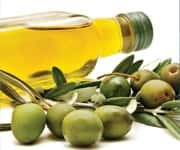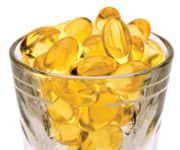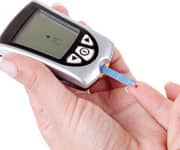Life Extension Magazine®
 | |
Metformin for Hepatitis C | |
Life Extension® has been reporting on the benefits of metformin for years. New research indicates metformin, normally used to treat diabetes, may be a useful therapy for those with hepatitis C infection as well. In vitro data suggests metformin may have a suppressive effect on replication of the hepatitis C virus.1 In women with hepatitis C virus genotype 1 infection who were found to exhibit insulin resistance, taking metformin in addition to standard hepatitis C therapy resulted in a doubled sustained virologic response and greater decrease in viral load compared to placebo in the first 12 weeks of treatment.2 A number of other clinical studies have also shown improved sustained virologic response rates among insulin-resistant patients with hepatitis C receiving metformin in addition to standard therapy.3,4 Metformin use was also correlated with a significantly better prognosis among 99 diabetic patients who were also diagnosed with hepatitis C and cirrhosis. Compared to non-use, metformin treatment was associated with an 81% reduction in risk of hepatocellular carcinoma and a 78% reduction in liver-related death or need for liver transplant.5 —A. Pryce | |
| Reference | |
| 1. Microbiol Immunol. 2011 Nov;55(11):774-82 2. Dig Dis. 2010;28(1):285-93 3. Int J Infect Dis. 2012 Jun;16(6):e436-41 4. Hepatology. 2009 Dec;50(6):1702-8 5. J Clin Endocrinol Metab. 2011 Aug;96(8):2601-8 |
Study Links Greater Olive Oil Consumption with Decreased Risk of Dying Over 13 Year Period | |
A study described in the American Journal of Clinical Nutrition has uncovered an association between greater olive oil intake and a lower risk of dying over an average of 13.4 years of follow-up.* Researchers analyzed data from 40,622 men and women who were aged 29 to 69 years upon recruitment to the European Prospective Investigation into Cancer and Nutrition. Interview responses concerning foods and drinks consumed were analyzed for olive oil and caloric intake. Over a follow-up period beginning in 1992-1996 and ending 2006-2009, there were 416 deaths from cardiovascular disease, 956 cancer deaths and 417 deaths from other causes. Participants whose olive oil intake was among the top one-fourth of participants had a 26% lower risk of dying of any cause and a 44% lower risk of dying from heart disease compared to those who did not consume olive oil. Editor's Note: Olive oil contains monounsaturated fatty acids, vitamin E, and phenolic compounds, all of which may play a role in the protection against chronic diseases including cardiovascular disease. Author Genevieve Buckland and colleagues note that olive oil has been shown to improve systemic inflammation and glycemic control in randomized clinical trials. —D. Dye | |
| Reference | |
| * Am J Clin Nutr. 2012 Jul;96(1):142-9. |
Poor Survival Among African-American Cancer Patients Could be Explained by Low Vitamin D Levels | |
The authors of a review published in Dermato-Endocrinology suggest that decreased production of vitamin D by African-Americans may be a reason for their higher rates of cancer mortality in comparison with Caucasians.* Because African-Americans have a 40% lower average serum vitamin D concentration than Caucasians due to darker skin pigmentation that impairs production of the vitamin from sunlight, the authors suggest a causative role for insufficient vitamin D levels in the decreased survival observed in this group. The review evaluates scientific literature concerning cancer disparities between African-Americans and Caucasians, as well as studies examining vitamin D status and cancer in order to evaluate the evidence supporting this hypothesis. "All cancers for which a disparity in cancer-specific survival was reported also have evidence for a beneficial role of vitamin D," the authors report. Editor's Note: Because cancer takes years to reach a stage in which it can be detected, high serum vitamin D concentrations over the course of a lifetime are needed to reduce risk, the authors note. Once the disease has been diagnosed, vitamin D improves survival via antiangiogenic and antimetastatic mechanisms, as well as by other factors. —D. Dye | |
| Reference | |
| * Dermato-Endocrinol. 2012 Apr/May/Jun;4(2). |
Calorie Restriction Practitioners Stay Young at Heart | |
An article published online on May 21, 2012, in the journal Aging Cell reports the outcome of a study of humans who voluntarily practice calorie restriction that suggests the practice helps preserve heart function, in addition to many other benefits.* The study evaluated heart rate variability as a marker for cardiac autonomic functioning in 22 subjects whose calorie intake was approximately 30% lower than normal, and 20 men and women of the same age (which ranged from 35 to 82 years) who consumed a standard Western diet. Heart rate variability as measured by 24-hour heart monitoring in the calorie restricted group was found to be comparable with normal values for healthy individuals 20 years younger. The difference between the calorie restricted and normal group was similar to that induced by the drug atenolol, which is used in cardiovascular disease and hypertension. Editor's Note: "Higher heart rate variability means the heart can adjust to changing needs more readily," explained lead author Phyllis K. Stein, PhD. "Heart rate variability declines with age as our cardiovascular systems become less flexible, and poor heart rate variability is associated with a higher risk of cardiovascular death." —D. Dye | |
| Reference | |
| * Aging Cell. 2012 May 21. |
Supplementing with Calcium and Vitamin D Associated with Lower Risk of Dying Over Three-Year Period | |
An article published in the Journal of Clinical Endocrinology and Metabolism reveals the outcome of a pooled analysis of eight randomized controlled trials which suggests that the use of calcium and vitamin D supplements reduced mortality over an average three-year period.* Lars Rejnmark, PhD, of Aarhus University Hospital in Denmark and his colleagues evaluated mortality among clinical trial participants assigned to calcium with vitamin D or vitamin D alone. Each trial included over 1,000 women and men who had a median age of 70 years. Dr. Rejnmark's team found a 9% lower risk of dying over an average of three years in subjects who consumed calcium with vitamin D in comparison with those who did not receive the combination. Editor's Note: Most studies evaluate human populations taking lower doses of vitamin D supplements. Higher dose vitamin D (around 5,000 IU/day) might confer greater longevity benefits. —D. Dye | |
| Reference | |
| * J Clin Endocrinol Metab. 2012 May 17. |
CoQ10 Shows Promise for Huntington's Disease | |
The Journal of Huntington's Disease published the finding of Kevin M. Biglan, MD, and his colleagues of a possibility for coenzyme Q10 (CoQ10) to retard the progression of Huntington's disease.* CoQ10, due to its support of the cells' mitochondria and its antioxidant effect, has been investigated as a possible agent to treat Huntington's disease. The current research evaluated 20 Huntington's disease patients and 8 controls that had been given CoQ10 in a clinical trial. Blood samples obtained at the beginning and end of treatment were analyzed for serum 80HdG, which has been correlated with oxidative stress in the brain's cells and has been found to be elevated in those with Huntington's disease. While the trial had found a reduction in Huntington's disease symptoms after treatment with CoQ10, the current research uncovered a 17% reduction in 8OHdG levels in Huntington's disease patients as well as a nonsignificant reduction in subjects who did not have the disease. Editor's Note: Huntington's disease is a neurodegenerative disorder caused by a genetic error that produces abnormal proteins in the brain's cells. Scientists believe that these protein deposits result in oxidative stress that ultimately kills the cells that contain them. "This study supports the hypothesis that CoQ10 exerts antioxidant effects in patients with Huntington's disease and therefore is a treatment that warrants further study," Dr. Biglan concluded. —D. Dye | |
| Reference | |
| * J Huntington's Dis. 2012;1(71-75). |
 |
Trial Will Evaluate Resveratrol in Alzheimer's Dementia |
| Researchers at Georgetown University and 25 other US academic institutions affiliated with the Alzheimer's Disease Cooperative Study will be conducting a phase II double-blinded, placebo-controlled trial that will test the effects of resveratrol in Alzheimer's disease patients.* The twelve-month trial will enroll men and women age 50 and over with mild to moderate dementia diagnosed as probable Alzheimer's disease and will require one caregiver or friend for each patient. Participants will be initially assigned to 500 mg resveratrol or a placebo daily, with dosage to be increased at 13 week intervals to a maximum of 1,000 mg twice per day. Lumbar punctures, brain magnetic resonance imaging (MRI) scans, and blood and urine tests will monitor the subjects' progress over the course of ten visits. The researchers hope to determine whether supplementation with resveratrol is helpful in delaying or altering the deterioration of memory and daily function that occurs in Alzheimer's disease. Editor's Note: The study will also test whether resveratrol improves glucose and insulin metabolism, although diabetics will not be included in the trial. —D. Dye |
| Reference |
| * Presented ahead of a trial. |
CT Scans Linked to Rise in Cancer Risk for Children | |
For years, Life Extension has warned of the potential risk of cancer due to the radiation caused by CT scans. Now, a recent report in The Lancet shows that the most vulnerable among us, children, may be suffering from not heeding our warning.* The study included patients without previous cancer diagnoses who were first examined with CT scans in National Health Service (NHS) centers in England, Wales, or Scotland (Great Britain) between 1985 and 2002, when they were younger than 22 years of age. The scientists conducting the study received data for cancer incidence, mortality, and loss to follow-up from the NHS Central Registry from Jan. 1, 1985, to Dec. 31, 2008. These documents showed a positive association between radiation dose from CT scans and leukemia and brain tumors, leading the researchers to write that the "use of CT scans in children to deliver cumulative doses of about 50 mGy might almost triple the risk of leukemia and doses of about 60 mGy might triple the risk of brain cancer." —J. Finkel | |
| Reference | |
| * Available at: http://www.thelancet.com/journals/lancet/article/PIIS0140-6736(12)60815-0/abstract. Accessed June 19, 2012. |
Whey Protein May Heal Diabetic Wounds and Restore Immune Response in Mice |
| It is well known that diabetes-associated complications are a major source of immune system fatigue and this may lead to higher risk for infection. Diabetes can cause poor circulation in the feet, increasing the likelihood of ulcers forming when the skin is damaged and slowing the healing of the ulcers. Whey proteins enhance immunity during childhood and have a protective effect on some immune disorders. A recent article in BMC Immunology reveals a study done by scientists who investigated the effects of camel whey protein on the healing and closure of diabetic wounds in a type I diabetic-induced mouse model.* Over the course of treatment, compared with untreated diabetic mice, those mice supplemented with whey protein significantly accelerated the closure of diabetic wounds by limiting inflammatory stimuli. The researchers concluded that their, "data demonstrates the benefits of whey protein supplementation for improving the healing and closure of diabetic wounds and restoring the immune response in diabetic mice." This discovery may be of critical importance in humans suffering from diabetes. —J. Finkel |
| Reference |
| * Plant Foods Hum Nutr. 2012 May 31. |
Pomegranate Juice May Improve Heart Health | |
Researchers at Sheffield Hallam University in South Yorkshire, UK have recently concluded that pomegranate juice may improve cardiovascular risk because of the presence of antioxidant polyphenols.* In a randomized, placebo-controlled parallel study, participants consumed 330 ml/day of pomegranate juice or a control drink for four weeks. Measurements for pulse wave velocity, blood pressure, and plasma antioxidant status were made at baseline and at four weeks. While there was no effect on pulse wave velocity, the subjects taking the pomegranate juice showed a significant fall in systolic blood pressure, diastolic blood pressure, and mean arterial pressure. This led the scientists to state that pomegranate juice supplementation has benefits for blood pressure in the short term. —J. Finkel | |
| Reference | |
| * Plant Foods Hum Nutr. 2012 May 31. |
Glucose Regulation Key to Lowering Diabetes Risk | |
Researchers involved with the Diabetes Prevention Program Research Group attempted to quantify and predict diabetes risk reduction during the Diabetes Prevention Program Outcomes Study (DPPOS) in participants who returned to normal glucose regulation at least once during the Diabetes Prevention Program (DPP) compared with those who consistently met criteria for prediabetes.* The researchers found that diabetes risk during DPPOS was 56% lower for participants who had returned to normal glucose regulation versus those who consistently had prediabetes. This led researchers to conclude that, "prediabetes is a high-risk state for diabetes, especially in patients who remain with prediabetes despite intensive lifestyle intervention. Reversion to normal glucose regulation, even if transient, is associated with a significantly reduced risk of future diabetes independent of previous treatment group." —J. Finkel | |
| Reference | |
| * Available at: http://www.thelancet.com/journals/lancet/article/PIIS0140-6736(12)60525-X/abstract. Accessed June 19, 2012. |










